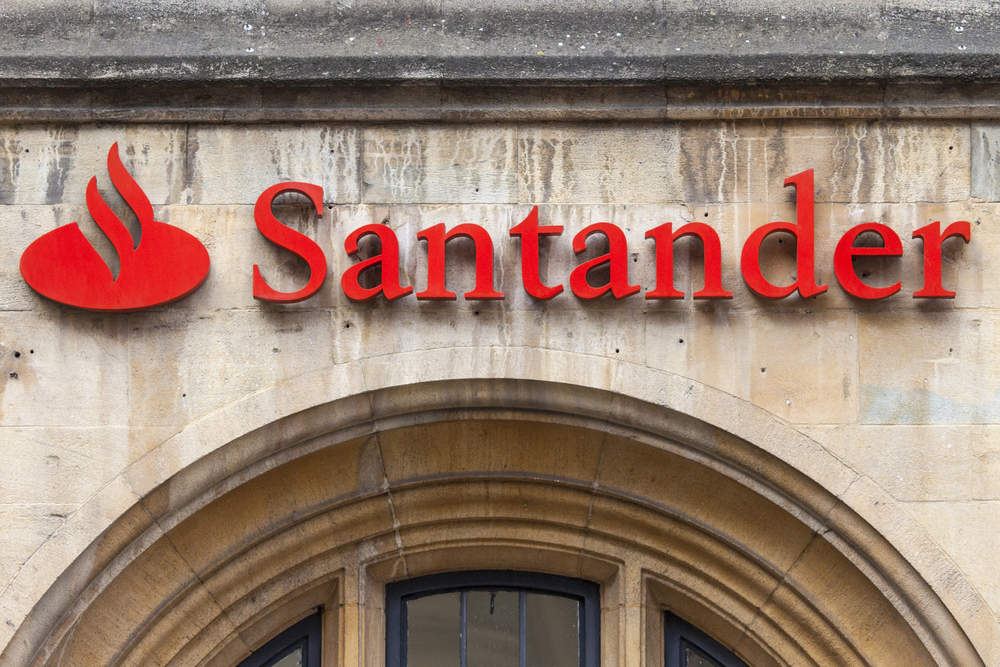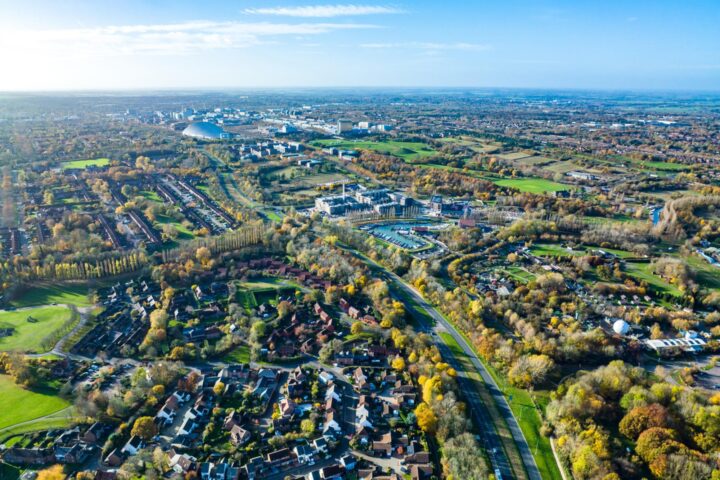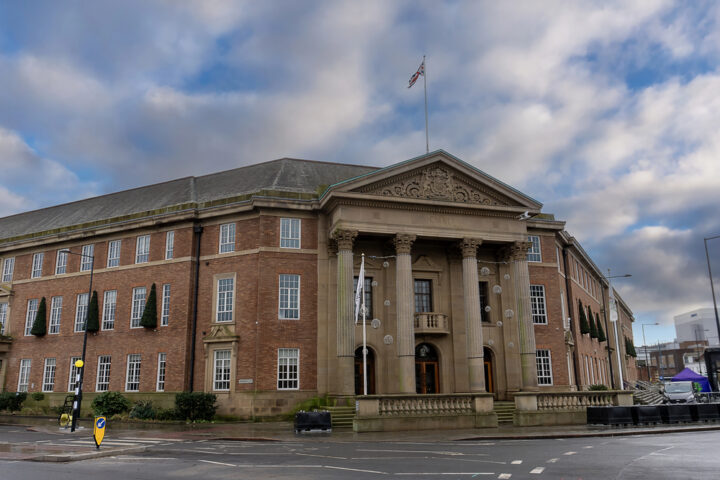The West Midlands is navigating a dynamic landscape of economic restructuring and forward-thinking innovation. Santander’s decision to close six branches across the region, part of a broader UK overhaul, reflects shifting banking habits and puts jobs at risk while introducing new community roles. Meanwhile, a pioneering electric vehicle trial at the University of Warwick aims to transform last-mile logistics, promising greener deliveries and local job creation. Together, these developments highlight a region balancing adaptation with ambition.
Santander’s Branch Closures: A Digital Pivot
Santander UK plans to shutter six Midlands branches within a nationwide reduction of 95, impacting a third of its 444-branch network. The closures, announced in March 2025, target Kidderminster (Worcestershire) and Louth (Lincolnshire) for mid-June, followed by Malvern (Worcestershire), Market Harborough (Leicestershire), and Ross-on-Wye (Herefordshire) in July. Droitwich (Worcestershire) will also close, though a date is pending. This move jeopardises around 750 jobs, roughly four per cent of Santander’s 18,000 UK employees, echoing a 2021 cut of 111 branches.
The bank cites a surge in digital banking, with online transactions up 63% since 2019 and branch visits down 61%. To cushion the impact, Santander will hire 95 community bankers to serve affected areas, visiting libraries and community halls weekly, and hopes to redeploy some staff into these roles. A spokesperson said, “Closing a branch is always a very difficult decision, and we spend a great deal of time assessing how to minimise the impact on our customers.”
Additionally, 36 branches will reduce hours to three days a week—either Mondays, Wednesdays, and Fridays or Tuesdays, Thursdays, and Saturdays, starting in July. Eighteen others will shift to counter-free formats from June 16, with staff offering support rather than teller services. The remaining 290 full-service branches and five “work cafés”—free coworking spaces—aim to balance digital and in-person banking. This aligns with a broader trend, with over 6,200 UK bank branches closed since 2015, averaging 53 per month.
Midlands customers can turn to over 11,000 Post Offices and 112 Banking Hubs for basic transactions like deposits and withdrawals. Santander is reaching out to vulnerable clients to guide them toward online, telephone, or nearby branch options. However, closures raise concerns about cash access, particularly in places like Kidderminster, where the nearest branches are eight miles away in Stourbridge or 14 miles in Worcester.
Electric Cargo Trials: Greening the Last Mile
While banking contracts, the West Midlands is charging toward sustainability with the Last Mile Logistics Project, led by Warwick Manufacturing Group at the University of Warwick in partnership with Transport for West Midlands. Funded by the West Midlands Innovation Programme, part of the region’s Innovation Accelerator, the project tests low-speed electric delivery vehicles on the university’s campus, a “mini city” testbed. The aim is to replace petrol and diesel vans, reducing congestion, emissions, and improving air quality.
The initiative adapts cargo bikes with throttle controls and trials-proven Dutch models, used by the university’s delivery, waste, and maintenance teams. Researchers are working with the Department for Transport to analyse data and tackle regulatory barriers to legalising these vehicles on UK roads and cycle lanes. West Midlands Mayor Richard Parker highlighted the region’s transport heritage, from steam engines to cars. “With online shopping booming, the delivery sector is playing an ever-increasing role in our regional economy, generating much-needed jobs,” he said. “That’s why I’m funding this project to find new ways of keeping goods moving sustainably.”
The trials also seek to establish the West Midlands as a manufacturing hub for these vehicles, tapping its automotive supply chain to create jobs. Mark Urbanowski, principal engineer for micromobility, said, “There’s real potential to lower emissions and reduce congestion. Economically, tens of thousands could be rolled out, all designed, engineered, and built in the UK.” The project builds on the Innovation Accelerator’s success, supporting over 700 businesses and securing £70 million in investment for net-zero tech and healthcare.
A Region at a Turning Point
Santander’s closures reflect a digital shift reshaping high streets. In Kidderminster, for example, 93% of customers already use online or phone banking, yet losing physical branches challenges those reliant on in-person services, particularly in rural areas like Ross-on-Wye or Droitwich. The bank’s community bankers and counter-free sites aim to bridge this gap, but the transition may strain access to cash.
In contrast, the Last Mile Logistics Project embraces green technology to tackle e-commerce’s environmental toll, which has skyrocketed post-pandemic. By testing electric cargo vehicles, the West Midlands is eyeing both carbon cuts and economic gains, potentially thousands of jobs if it becomes a production hub. The contrast is striking: one sector shrinks under digital disruption, while another grows through innovation, both redefining the region’s economic fabric.
Looking Ahead
By summer 2025, Santander’s closures will reshape the Midlands’ banking landscape, nudging customers toward digital or alternative channels. Meanwhile, the electric vehicle trials could spark a logistics revolution, influencing national policy and local industry. As the West Midlands navigates these shifts, it stands as a crucible for change adapting to new realities while forging a cleaner, job-rich future.






